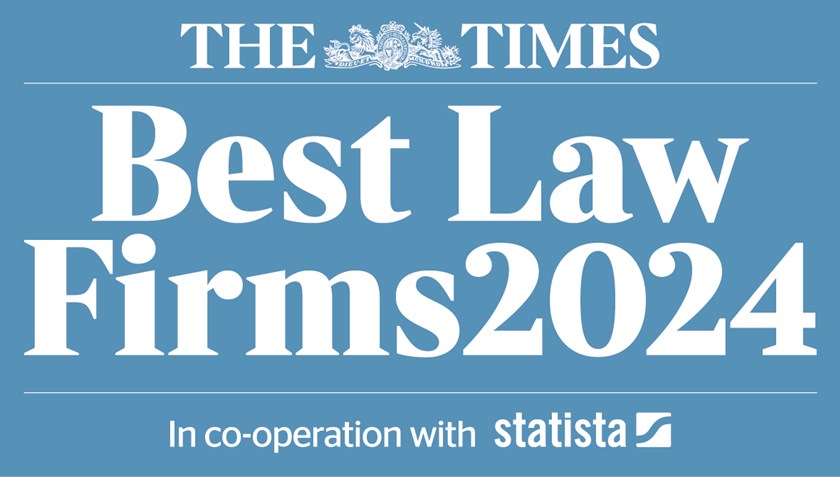Charities: a guide to legislative changes
Insight

Charities and their trustees should be aware of changes to the charity law legislative landscape. This article takes a quick look at some key recent and planned developments:
Further implementation of the Charities Act 2022
While various parts of the Charities Act 2022 have already come into force, several further provisions were implemented on 7 March 2024. The relevant sections recently implemented are:
- Changes to charity governing documents. The legislation governing constitutional amendments has been updated so that the rules on changes for unincorporated charities (including trusts and unincorporated associations) align with those in place for charitable companies and Charitable Incorporated Organisations (CIOs).
- Land disposals. There are new rules on what needs to be included in statements and certificates for both disposals (including sales and leases) and mortgages of land held by charities.
- The appointment of trustees. The Charity Commission has been given a new power to make orders confirming defective (or potentially defective) trustee appointments, ensuring that such appointments can be treated as valid.
- The remuneration of trustees. The Charity Commission will now also be able to make an order authorising “equitable allowances” to be paid to a trustee (essentially payment for work done for a charity by a trustee, where it would be inequitable for them not to be paid).
- Charity mergers. New rules have been put in place to help ensure that most gifts (such as legacies) to charities that merge will take effect as gifts to the post-merger charity.
The Economic Crime and Corporate Transparency Act 2023 (ECCTA)
A wide range of charities will need to take note of the ECCTA, which will affect those which are established as companies, or which have a company or LLP within their structure (meaning charities with either a trading subsidiary company, or a corporate trustee, should be aware the changes being implemented). The ECCTA received royal assent in October 2023, and a number of its provisions have come into force in March 2024.
This article by Charlie Court and Sophie Giblin in our Corporate team explains the key changes, which will see an expanded role for Companies House with regard to company data. In brief, charitable companies (or the corporate trustees or trading subsidiaries of charities) will now be required to:
- Have an “appropriate” registered office address (meaning one at which documents sent to the address will reach the person acting for the company, and will be recorded by acknowledgement of delivery),
- Provide a registered email address which will be used to communicate with the company, and
- Make a statement of lawful purpose (both at incorporation by their initial subscribers, and in annual return filings).
Companies House will now also be given additional powers to challenge and/or reject company information which it believes is inaccurate, incomplete, or fraudulent.
In due course, Companies House will also introduce an identity verification regime for directors, PSCs, and individuals delivering documents to Companies House on a company’s behalf. These changes will have an impact on the filings made by charitable companies in relation to their trustees and members, and where they are filing changes to their governing document with Companies House.
The National Security Act 2023 (and the FIRS)
A small number of charities will also be impacted by the new Foreign Influence Registration Scheme (or FIRS), which is to be implemented under the provisions of the National Security Act 2023 and is expected to come into force at some stage in 2024.
FIRS will require organisations, including charities, in certain types of “arrangements” with foreign powers to register these arrangements with the Government, with the stated goal of strengthening the resilience of the UK political system against covert foreign influence. Charities with connections to foreign governments will want to consider whether they are required to register under the new legislation, which features two “tiers” of registration:
- The political influence tier, which will require individuals and entities to register if they are directed by a foreign power to carry out “political influence activities” in the UK.
- The enhanced tier will require individuals and entities to register where they act at the direction of certain specified foreign powers which the Government considers pose a risk to UK safety and interests. The relevant foreign powers here must be specified in regulations to be published by the government.
Failure to register when required to do so will be a criminal offence, so charities with connections to foreign governments should make themselves aware of the details of the scheme. Certain information registered under FIRS will be made public.
Draft guidance on the FIRS has been produced and consulted on by the Government, and the consultation has now closed. The draft guidance includes definitions of the terms “direction” (which makes clear that the government believes that funding from a foreign power, in itself, will not constitute a direction), and “political influence activity” (which can encompass particular communications to senior public officials and politicians, along with public communications), which trustees may find helpful at this stage.
However, concern has been raised amongst charity law practitioners about a lack of clarity within the draft guidance, particularly with regard to when activities supported by grant funding provided by a “foreign power” will be registrable, and a Charity Law Association working party recently highlighted the potential for the regime to restrict the activities of charities “in a manner contrary to the public interest”.
Full detailed guidance will be released ahead of the FIRS coming into force later this year.
This publication is a general summary of the law. It should not replace legal advice tailored to your specific circumstances.
© Farrer & Co LLP, March 2024







